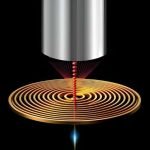AI enhances precision in dark energy understanding
In a groundbreaking study led by UCL, researchers have harnessed the power of artificial intelligence (AI) to delve deeper into the mysteries of the...
Unlocking the secrets of plasma: A leap forward for fusion energy
When we talk about the different forms matter can take, we usually mention solids, liquids, and gases. But there's a fourth state, one that's...
Astronomers discover the universe’s oldest ‘ghost’ galaxy
Astronomers have made a groundbreaking discovery using the James Webb Space Telescope: they've found the oldest galaxy that stopped making stars over 13 billion...
Scientists find new way to detect low-frequency gravitational waves
In an exciting development in the field of physics, a team has introduced a groundbreaking method to detect incredibly low-frequency gravitational waves.
This novel approach...
New sky maps offer a deeper dive into universe’s origins and history
High up in the Andes mountains of northern Chile, a small observatory has been busy capturing a clearer picture of the universe than we've...
Using quantum dark states for better noise control
Physicists are on a quest to make the most precise timekeepers in the universe, atomic clocks, even more accurate. They're exploring an advanced concept...
Room-temperature photon sources advance quantum technologies
In a landmark study, researchers have made a crucial breakthrough in quantum photonics, creating a pathway for integrating single-photon sources on chips at room...
Making quantum computers more powerful
Quantum computers are like the supercharged future versions of the computers we use today.
They have the potential to solve problems that our current computers...
Scientists discover a new way heat moves in super-cool liquid
In a groundbreaking experiment, a team of scientists from the Massachusetts Institute of Technology (MIT) has discovered an unusual behavior of heat in a...
Scientists explore the mysteries of neutrino particles through cutting-edge experiments
Neutrinos are tiny particles that are incredibly important in the world of physics.
They were once thought to have no mass, but groundbreaking discoveries showed...










